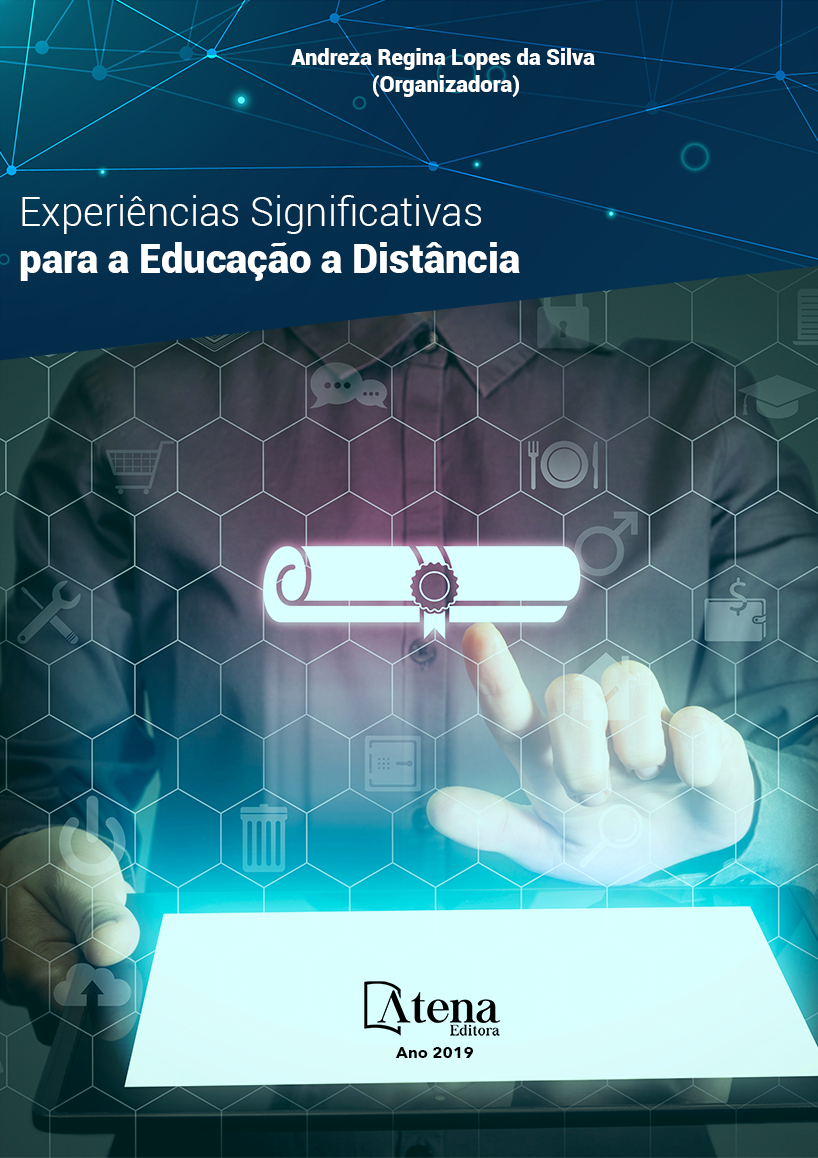
MEDIAÇÃO PEDAGÓGICA VIRTUAL EXPERIÊNCIA COM PIDIANOS DO CURSO DE PEDAGOGIA NA MODALIDADE A DISTÂNCIA
Este artigo visa discorrer sobre a
experiência da mediação pedagógica virtual,
durante o processo de formação inicial à
docência de alunos do Pedagogia a distância,
da UDESC que participaram do Programa
Institucional de Bolsa de Iniciação à Docência
(PIBID) no polo de Laguna, entre os anos
de 2014 a 2017. Os diálogos e orientações
ocorreram por meio do ambiente virtual de
aprendizagem, via fórum, chat, hipertextos,
mural, e-mails, videoconferências, Webaulas,
aplicativos de conversa, Skype, entre outros
recursos das tecnologias digitais de rede. As
práticas pedagógicas desses acadêmicos
foram registradas em diário de bordo do AVA
Moodle, blog interativo e relatórios postados
no referido ambiente de aprendizagem. Os
diálogos travados nesses ambientes virtuais,
bem orientações, materiais e postagem de
estudantes, docentes são fontes documentais.
Portanto, a metodologia está ancorada nos
princípios da abordagem metodológica, cujos
procedimentos se nortearão pela pesquisa
documental. Esses registros documentais
possibilitam estudos e reflexões sobre a práxis
pedagógica do PIBID em articulação com o
curso de Pedagogia a distância, bem como,
a análise sobre mediações pedagógicas
viabilizadas pelas tecnologias digitais em rede.
Pérez Gómes (2015) pondera que acesso ao
conhecimento na era globalizada da informação
digitalizada é relativamente fácil, imediato,
onipresente e acessível. Os pressupostos de
Tardif (2014) contribuíram para a reflexão do
objeto deste artigo contida nos documentos
mencionados, referentes à formação de
professores. Os resultados observados
indicam que os acadêmicos construíram uma
experiência significativa da docência praticando
a indissociabilidade entre pesquisa, ensino
e extensão, devido ao uso de métodos e
tecnologias apropriadas.
MEDIAÇÃO PEDAGÓGICA VIRTUAL EXPERIÊNCIA COM PIDIANOS DO CURSO DE PEDAGOGIA NA MODALIDADE A DISTÂNCIA
-
DOI: 10.22533/at.ed.5791915049
-
Palavras-chave: Formação de professores. Educação a distância, PIBID, Tecnologias digitais de rede, Métodos.
-
Keywords: Teacher training. Distance education, PIBID, Digital network technologies, Methods.
-
Abstract:
This article aims to discuss the
experience of pedagogical mediation online
during the initial process of development of the
Pedagogy students in the distance mode of the
State University of Santa Catarina who participated in the Grant of Institutional Program
of the Initiation to Teaching (PIBID) at the polo of Laguna, between the years 2014 to
2017. The dialogues and orientations took place through the virtual learning environment,
via forum, chat, hypertexts, mural, e-mails, videoconferences, online classes, as well
as whatsApp, Skype, among other resources of digital network technologies. The
pedagogical practices of these academics were recorded in AVA Moodle’s logbook as
well as the interactive blog and reports posted in the mentioned learning environment.
The dialogues that took place in these virtual environments, as well as the orientations,
materials and posting of students and teachers, are documentary sources. Therefore,
the methodology is anchored in the principles of the methodological approach, whose
procedures will be guided by documentary research. These documentary records
enable studies and reflections on the pedagogical praxis of PIBID in articulation with
the distance pedagogy course, as well as the analysis of pedagogical mediations
brought by digital network technologies. Pérez Gómes (2015), considers that access
to knowledge in the globalized era of digitized information is relatively easy, immediate,
ubiquitous and accessible. The assumptions of Tarfidf (2014) contributed to the reflection
of the object of this article contained in the mentioned documents, concerning the
development of teachers. The results show that these students have built a significant
experience of teaching, practicing the indissociability between research, teaching and
extension, whose physical distance was not a hindrance due to the use of appropriate
methods and technologies.
-
Número de páginas: 15
- Tânia Regina da Rocha Unglaub
- Fabíola Sucupira Ferreira Sell


